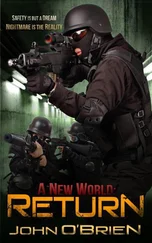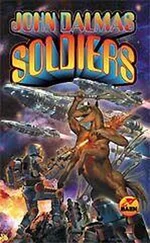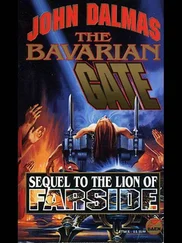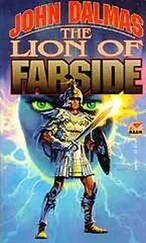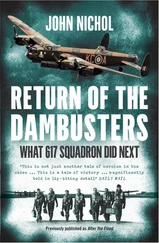John Dalmas - Return to Fanglith
Здесь есть возможность читать онлайн «John Dalmas - Return to Fanglith» весь текст электронной книги совершенно бесплатно (целиком полную версию без сокращений). В некоторых случаях можно слушать аудио, скачать через торрент в формате fb2 и присутствует краткое содержание. Жанр: Фэнтези, на английском языке. Описание произведения, (предисловие) а так же отзывы посетителей доступны на портале библиотеки ЛибКат.
- Название:Return to Fanglith
- Автор:
- Жанр:
- Год:неизвестен
- ISBN:нет данных
- Рейтинг книги:4 / 5. Голосов: 1
-
Избранное:Добавить в избранное
- Отзывы:
-
Ваша оценка:
- 80
- 1
- 2
- 3
- 4
- 5
Return to Fanglith: краткое содержание, описание и аннотация
Предлагаем к чтению аннотацию, описание, краткое содержание или предисловие (зависит от того, что написал сам автор книги «Return to Fanglith»). Если вы не нашли необходимую информацию о книге — напишите в комментариях, мы постараемся отыскать её.
Return to Fanglith — читать онлайн бесплатно полную книгу (весь текст) целиком
Ниже представлен текст книги, разбитый по страницам. Система сохранения места последней прочитанной страницы, позволяет с удобством читать онлайн бесплатно книгу «Return to Fanglith», без необходимости каждый раз заново искать на чём Вы остановились. Поставьте закладку, и сможете в любой момент перейти на страницу, на которой закончили чтение.
Интервал:
Закладка:
Three of the baron's men waited for us outside the darker darkness of the scrub woods, with spare horses for Gunnlag and me. I had one of the wounded ride mine-a Varangian named Ketil, from a place called Jamtland. He was a huge man, even by Evdashian standards, and one of those who used an oversized, two-handed sword. I'd noticed him early on, not only because of his size, but because of his helmet. It had a nasal on it to protect the nose, and looked to be Norman, Normans had fought Varangians at various times, and I suspected that Ketil's helmet was a trophy from some Norman he'd killed.
Arno hoisted me up to ride with him. He was impressed that I'd give up my horse to a wounded comrade, and I was surprised that he found it admirable. It showed me another side of Arno; if I'd thought about it at all, I'd have expected him to consider my giving up my horse a weakness. The other Varangians regarded Ketil as a savage, which from them seemed to be a term reflecting admiration as well as caution. They all seemed wary of him, as if he was dangerous. Supposedly, as a youth, he'd been a member of a bandit troop in Jamtland that had preyed on trade caravans over the mountains there. He'd even broken a moose to the saddle to ride on, they said. Whatever a moose was.
It was nearly unbelievable that Ketil had walked all the way from the battle site. His calf had a deep cut across the muscle that made it impossible to flex his ankle or push off with the ball of his foot. Try walking on hills that way sometime! And even tightly bandaged, it leaked blood off and on. Yet the only sign of pain he showed was his bad limp. His grim lack of words didn't seem part of it; he hadn't talked much before the wound, either.
He didn't even say thank you, or anything else, when I turned my horse over to him.
Gilbert de Auletta's castle was Saracen-built, of course. It wasn't as large or luxurious as Roger's at Mileto's not by a long way, but it had a bath and gardens. And a dining hall. Eating was our first order of business. The Varangians ate the same way they did just about everything-they gave it a hundred percent. They weren't shy about the wine, either.
Gilbert kept us company while we ate, and drank wine with us. And spoke Greek with the Varangians. In fact, as the drinking continued, it was mainly with the Varangians that he talked. He'd been born in Italy, in Campania, grandson of one of the earliest Norman mercenaries there. Until the invasion of Sicily, he told us, he'd spent much of his life in the Norman effort to drive the Byzantines out of Italy. And he spoke Greek fluently, or at least easily.
Like the knights I'd known in Normandy, he wore his hauberk at the table, but he was different-looking from any other Norman knight I'd seen. Even wearing a hauberk, he had a slender, fine-boned look-like a Saracen, Arno whispered. His face was sharp, and his wrists and hands small. But his hands were extremely muscular, his bare forearms well-developed and sinewy, and when he chewed, the muscles in his jaw looked like stones.
His almost-black eyes seemed to actually gleam with an intensity that made me uncomfortable, but I couldn't fault his friendliness or hospitality.
Arno didn't seem to drink much. He raised his cup often enough, but I never saw him accept a refill. I decided he probably had a reason for that, so I did the same, and in Evdashian told Tarel and Moise to follow my example.
After supper we bathed. The Varangians knew about bathing. I didn't ask whether it was done in their homeland or if it was something they'd learned in Miklagard. In the bath was the only time I'd unslung my rifle from my shoulder, even at the table. And even in the bath I kept it in reach. The Varangians and Gilbert would just have to assume it was some religious instrument.
When we'd finished our bath, a servant showed Arno, Tarel, Moise, and me to a separate room, with actual mattresses, stuffed at least partly with nice-smelling herbs. The Varangians would bunk down in the dining hall on straw. I put my belt, with its weapons, on the floor by my head, and Arno blew out the flame in the bowl of oil that was our lamp. It felt incredibly good to lie on something soft, with no stones digging my back, and my stomach not only full but happy.
Now that I felt comfortable and safe, my mind kept me awake. Tired though I was. First, my attention went to Jenoor. From her it went to the Empire. What was I doing about it? I lay there scratching occasionally and feeling frustrated. So far, all my attention had been on surviving; I hadn't accomplished a thing toward establishing a rebel base. But survival was something, and when we got to Palermo, I'd meet Roger. And Guis-card, if he was there. And if Arno didn't volunteer an introduction..,
Arno interrupted my thoughts. "Larn," he murmured.
"Yes?"
He spoke in slow Evdashian. "I feel ill at ease here, apart from the Varangians. It may be unsafe."
I remembered my feeling about Gilbert. "Why?"
"I do not trust this baron."
"Was there something he did? Or said?" I couldn't help remembering Isaac ben Abraham's words about Norman treachery.
"I'm not sure. But this much I can say, although it falls well short of accounting for my feeling. Gilbert de Auletta was born in Italy, and his father before him; I believe you heard him say it. Some of those early families resent greatly the successes of the sons of Tancred de Hauteville, whom they consider upstart latecomers: They plotted and fought almost constantly against William Iron Arm until his death. And do against Guiscard when they dare. Roger arrived from Normandy only fifteen years ago, and his success here galls them most of all.
"And finally, they resent those newcomers of us who've attached ourselves to Guiscard or to Roger and have prospered by our loyalty."
Dimly I could see him get to his knees, his face a lighter blob in the darkness. "Gilbert may not be one who feels like that, but I do not trust him, for whatever reason. We should go back out among the Varangians."
Neither Tarel nor Moise had gone to sleep yet, so they'd heard all that. Together we got up, belted on our weapons, and left to spend the night on straw in the dining hall. I thought of taking my mattress, but decided it wasn't the thing to do. One of the Varangians was awake, sitting on a table, apparently a guard, and I wondered if Gunnlag was suspicious too. Or whether it was simply standard practice for Varangians among strangers in a strange stronghold.
It was Arno who woke me up. The sun was shining through the windows. I'd have been glad to sleep for two or three more hours, but servants were setting up for breakfast. By daylight, with the busy, ordinary sounds of breakfast being put on the table, our fears of the night before seemed a little silly. To me at least. Breakfast showed me again how the Normans in the south had changed from those I'd known in Normandy. We had fruit as well as porridge and cheese, custard as well as meat and bread and eggs.
I wished I'd brought a toothbrush with me.
The weather had turned almost summery-quite warm, no wind, bright sun, and only a few fluffy white clouds. After breakfast we loafed around outside, napped in the sunshine, snacked on dates and some small wrinkly fruits called raisins, and occasional little cakes with a fruit in them called figs, which I'd tasted first in Marseille. They were brought to us by servants that Arno told me were Saracens.
Like Roger's place at Mileto, and unlike any castles I'd seen in Normandy, the grounds here were landscaped. Like the Byzantines, the Saracens definitely had a stronger aesthetic sense than Normans did, but I'd bet ten credits that the Normans would pick it up from them. Like they were picking up bathing.
Later, some of the Varangians left on horses to get the wounded we'd left behind in the mountains. Most of the rest were feeling energetic enough to wrestle, and one of them challenged Arno. Arno took him on, and it seemed to me that neither of them was clearly the winner.
Читать дальшеИнтервал:
Закладка:
Похожие книги на «Return to Fanglith»
Представляем Вашему вниманию похожие книги на «Return to Fanglith» списком для выбора. Мы отобрали схожую по названию и смыслу литературу в надежде предоставить читателям больше вариантов отыскать новые, интересные, ещё непрочитанные произведения.
Обсуждение, отзывы о книге «Return to Fanglith» и просто собственные мнения читателей. Оставьте ваши комментарии, напишите, что Вы думаете о произведении, его смысле или главных героях. Укажите что конкретно понравилось, а что нет, и почему Вы так считаете.

